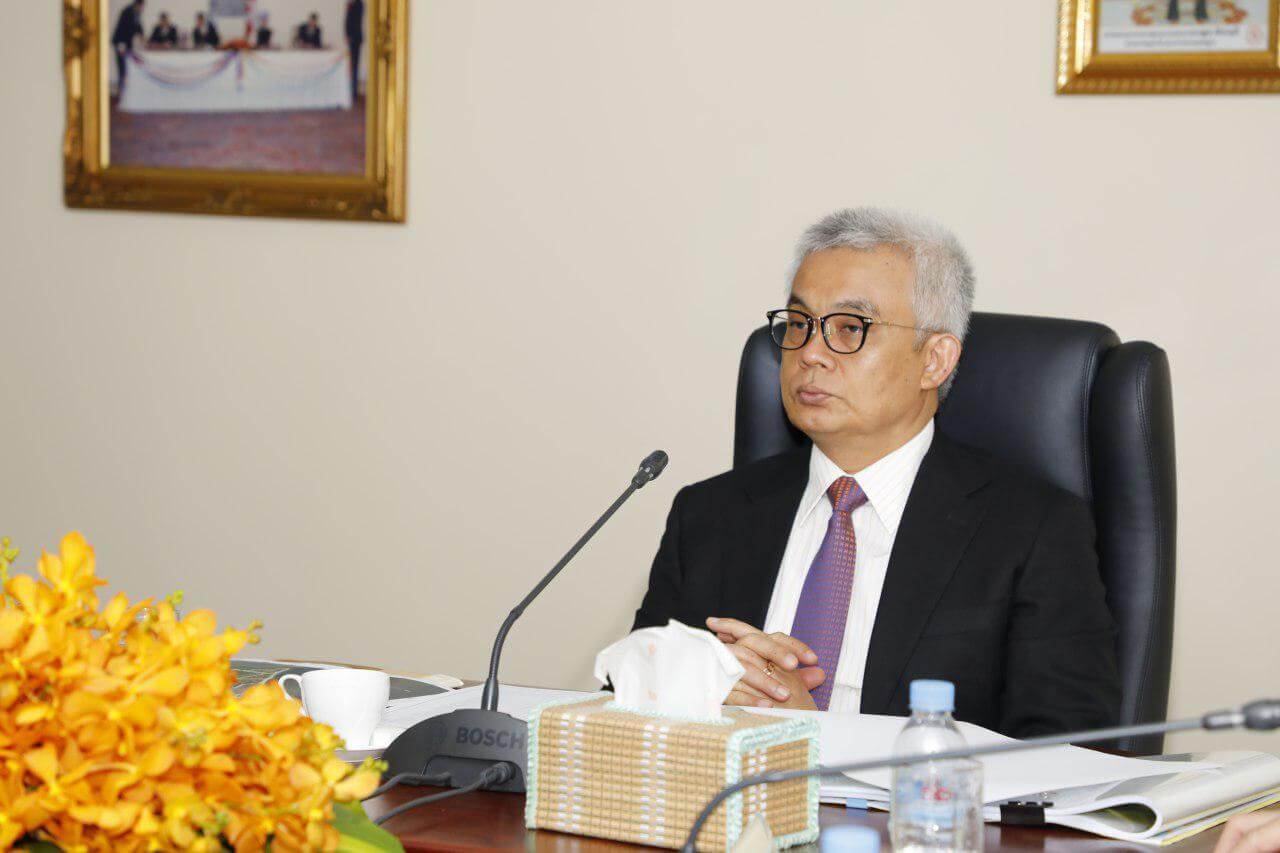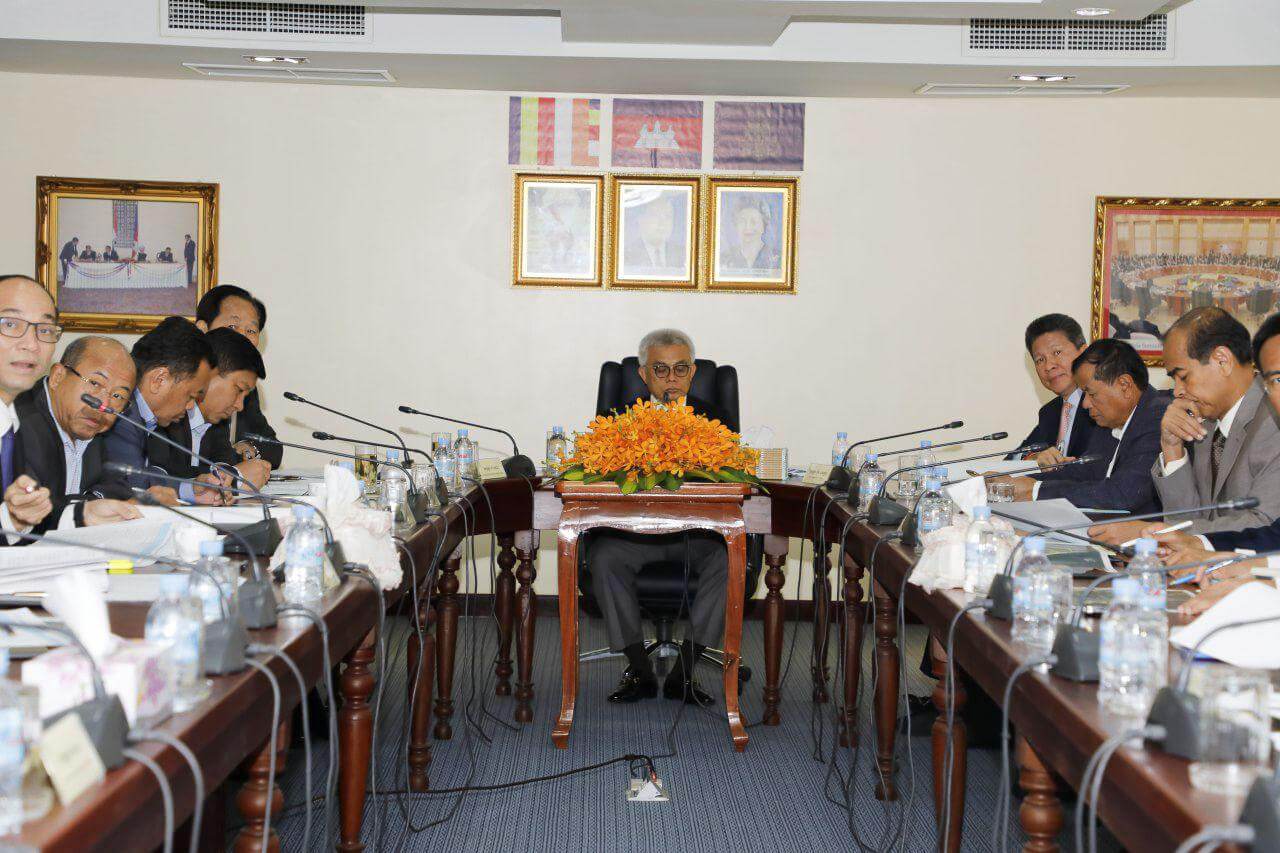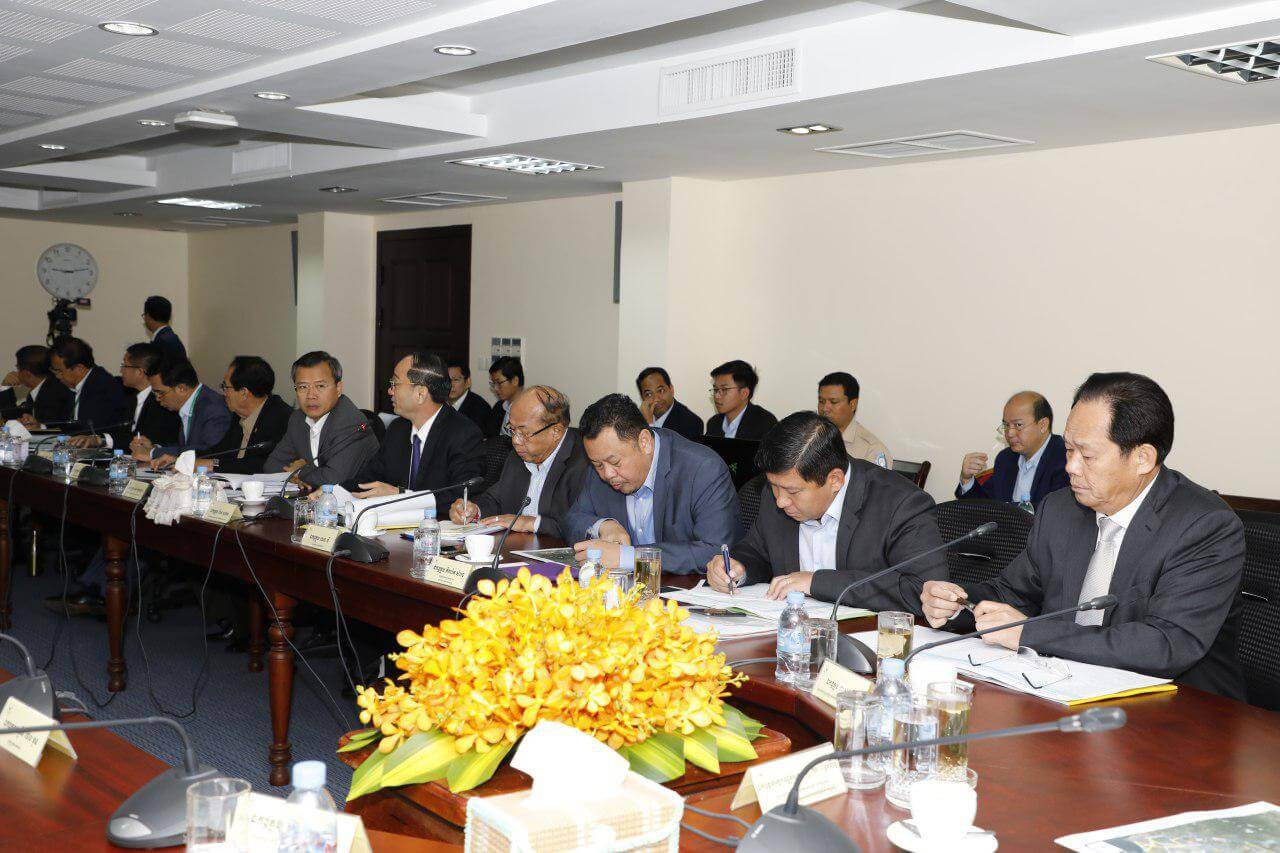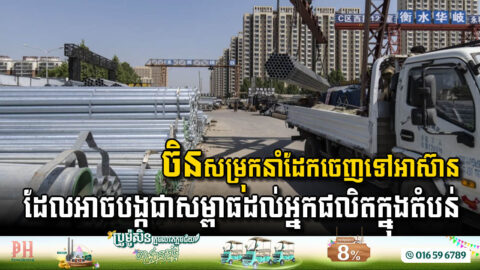ត្រឹម៣ខែដំបូង នៃឆ្នាំ២០២៥ កម្ពុជាស្រូបភ្ញៀវទេសចរអន្តរជាតិជិត ២លាននាក់ កើនឡើង១៦%
ក្នុងការចាប់ផ្តើមដ៏គួរឲ្យកត់សម្គាល់ក្នុងឆ្នាំនេះ កម្ពុជាបានស្វាគមន៍ភ្ញៀវទេសចរអន្តរជាតិជិត ២លាននាក់ក្នុងត្រីមាសទី១ នៃឆ្នាំ២០២៥ ពោលគឺមានការកើនឡើង ១៦% បើធៀបនឹងរយៈពេលដូចគ្នាកាលពីឆ្នាំ២០២៤។ ការកើនឡើងនេះត្រូវបានលើកឡើងដោយ ឯកឧត្តមរដ្ឋមន្ត្រី ហួត ហាក់ រដ្ឋមន្ត្រីក្រសួងទេសចរណ៍ ក្នុងកិច្ចប្រជុំនាពេលថ្មីៗនេះ ក្នុងគោលបំណងជំរុញយុទ្ធនាការទេសចរណ៍សម្រាប់រដូវបៃតង ដែលធ្វើឡើងនៅថ្ងៃទី៧ ខែឧសភា ឆ្នាំ២០២៥។ ភ្ញៀវទេសចរដែលសម្រុកមកកម្ពុជាទាំងនេះបានរួមចំណែកជាង ២៣លានដុល្លារ ដល់សេដ្ឋកិច្ចក្នុងស្រុក តាមរយៈការទៅទស្សនាតំបន់វប្បធម៌សំខាន់ៗមួយចំនួនដូចជា ប្រាសាទអង្គរវត្ត, ប្រាសាទកោះកែរ,ប្រាសាទបេងមាលា, ភ្នំក្បាលស្ពាន, និងការជិះទូកកម្សាន្តដ៏គួរឱ្យទាក់ទាញ ដែលនេះជាការបង្កើននូវបទពិសោធន៍ដល់អ្នកទស្សនាបន្ថែមទៀត។ ទាំងអស់នេះបានបង្ហាញថាប្រទេសកម្ពុជាមិនត្រឹមតែជាគោលដៅទេសចរណ៍វប្បធម៌ប៉ុណ្ណោះទេ តែវាជាបទពិសោធន៍ផ្សងព្រេងដែលអ្នកទេសចរជាច្រើនកំពុងស្វែងរក។(អានបន្ថែម) ជាមួយគ្នានេះដែរ តាមរយៈរបាយការណ៍របស់រដ្ឋលេខាធិការដ្ឋានអាកាសចរណ៍ស៊ីវិល (SSCA) បានបង្ហាញពីនិន្នាការវិជ្ជមានបន្ថែមទៀតថា៖ ក្នុងរយៈពេល ៤ខែ ចុងក្រោយនេះ ក៏មានការកើនឡើងនូវជើងហោះហើរចេញ-ចូល(ទ្វេទិស)ឆ្លងកាត់ប្រទេសកម្ពុជាតាមរយៈ(អាកាសយានដ្ឋានអន្តរជាតិភ្នំពេញ សៀមរាប និងខេត្តព្រះសីហនុ) មានជាង ២.២ ម៉ឺនជើង ពោលគឺកើនឡើង ១៧% បើធៀបនឹងរយៈពេលដូចគ្នាក្នុងឆ្នាំ ២០២៤។ ក្នុងនោះដែរ ឃើញថា ចំនួនអ្នកដំណើរចេញ-ចូល(ទ្វេទិស) មានរហូតដល់ ២.៥២៥.២០៨នាក់ កើនឡើង ១៨% និងទំនិញដឹកជញ្ជូនតាមផ្លូវអាកាសចេញ-ចូល(ទ្វេទិស) មានសរុប ២២.៣៥០តោន […]
កម្ពុជា-ឡាវ ឯកភាពគ្នាជំរុញការនាំចេញកសិផលរបស់កម្ពុជាទៅប្រទេសទី៣ តាមរយៈរថភ្លើងល្បឿនលឿននៅឡាវ
កម្ពុជា និងឡាវ បានឯកភាពគ្នាជំរុញកសិពាណិជ្ជកម្មរវាងប្រទេសទាំងពីរ ដោយផ្តោតលើការនាំចេញផលិតផលស្វាយទៅប្រទេសទី៣ ដោយប្រើប្រាស់ប្រព័ន្ធផ្លូវដែកនិងរថភ្លើងល្បឿនលឿន ដើម្បីជំរុញកសិពាណិជ្ជកម្មទ្វេភាគី។ ការឯកភាពនេះ ត្រូវបានធ្វើឡើងរវាងឯកឧត្តម ឌិត ទីណា រដ្ឋមន្ត្រីក្រសួងកសិកម្មកម្ពុជា និងក្រសួងកសិកម្មឡាវ ក្នុងឱកាសបំពេញទស្សនកិច្ចផ្លូវការនៅប្រទេសឡាវ ចាប់ថ្ងៃទី៣០ ខែមេសា ដល់ថ្ងៃទី៣ ខែឧសភា ឆ្នាំ២០២៥ ។ នៅក្នុងដំណើរទស្សនកិច្ចនេះ ភាគីទាំងពីរបានឯកភាពគ្នាជំរុញកសិពាណិជ្ជកម្មរវាងប្រទេសទាំងពីរ ដោយផ្តោតលើការនាំចេញផលិតផលស្វាយទៅប្រទេសចិន ឬប្រទេសទី៣ តាមរយៈការប្រើប្រាស់ប្រព័ន្ធផ្លូវដែកនិងរថភ្លើងល្បឿនលឿនឆ្លងកាត់ប្រទេសឡាវ ដើម្បីបើកទីផ្សារថ្មីសម្រាប់ផលិតផលកសិកម្មរបស់កម្ពុជា។ លើសពីនេះ ភាគីទាំងពីរ ក៏បានឯកភាពបន្តពង្រឹងកិច្ចសហប្រតិបត្តិការផ្សេងៗទៀតលើឆាកអន្តរជាតិក្នុងវិស័យកសិកម្ម ដើម្បីផលប្រយោជន៍រួមនៃប្រទេសទាំងពីរផងដែរ។ គួរបញ្ជាក់ថា ដំណើរទស្សនកិច្ចរបស់ក្រសួងកសិកម្មទៅកាន់ប្រទេសឡាវ ក៏មានគោលដៅស្វែងយល់ពីដំណើរការទាញយករ៉ែ Potash មកប្រើប្រាស់ជាសារធាតុផ្សំមួយក្នុងការផលិតជីកសិកម្ម និងភ្ជាប់ទំនាក់ទំនងឱ្យអ្នកវិនិយោគកម្ពុជាអាចនាំយកផលិតផលសម្រេចជីប៉ូតាស (potash-based fertilizer) មកប្រើប្រាស់ក្នុងការផលិតជីនៅកម្ពុជាថែមទៀត។ ភាពជាដៃគូនេះគឺជាជំហានដ៏ជោគជ័យមួយឆ្ពោះទៅរកការលើកកម្ពស់សន្តិសុខស្បៀង និងកំណើនសេដ្ឋកិច្ចទាំងនៅក្នុងប្រទេសកម្ពុជា និងឡាវ ដោយសង្កត់ធ្ងន់លើការប្តេជ្ញាចិត្តរបស់ពួកគេក្នុងការអភិវឌ្ឍផ្លូវពាណិជ្ជកម្មកសិកម្មប្រកបដោយនិរន្តរភាព៕ - Video Advertisement -
អ្នកជំនាញបង្ហាញក្តីបារម្ភ៖ កំណើននៃការនាំចេញដែករបស់ចិនទៅកាន់ប្រទេសអាស៊ាន អាចបង្កការគំរាមកំហែងដល់អ្នកផលិតក្នុងតំបន់
យោងតាមរបាយការណ៍មួយបានបង្ហាញថា ក្នុងត្រីមាសទី១ ឆ្នាំ២០២៥នេះ ការនាំចេញដែកថែបរបស់ចិនទៅកាន់បណ្តាប្រទេសអាស៊ានមានការកើនឡើងរហូតដល់ ៣៦,៥៥លានតោន ស្មើនឹងប្រមាណជា ៧០% នៃការនាំចេញដែកថែបសរុបរបស់ចិន ដែលតួលេខនេះមានការកើនឡើងរហូត ៣២%។ នេះបើយោងតាមរបាយការណ៍ថ្មីៗនេះដោយ Yieh News ។ របាយការណ៍ដដែលបង្ហាញទៀតថា ដែកថែបរបស់ចិនត្រូវបាននាំចេញទៅកាន់ប្រទេសម៉ាឡេស៊ីកើនឡើងដល់ ៧១,៣% និងទៅកាន់ប្រទេសវៀតណាមកើនឡើងដល់ ៦៨,៥% ។ ដោយមើលឃើញពីកំណើនទាំងនេះ គណៈកម្មាធិការដែកថែបអាស៊ាន (AISC) បានសម្តែងនូវការព្រួយបារម្ភយ៉ាងខ្លាំងរបស់ខ្លួន ដោយជំរុញឱ្យរដ្ឋាភិបាលចិនពិចារណាឡើងវិញនូវគោលនយោបាយបច្ចុប្បន្នរបស់ខ្លួនស្តីពីការលើកលែងពន្ធនាំចេញ។ AISC ព្រមានថា បើគ្មានការកែសម្រួលគោលនយោបាយនេះទេ និន្នាការ កើនឡើងនៃការនាំចេញដែកថែបរបស់ប្រទេសចិនទំនងជាការដាក់សម្ពាធយ៉ាងធ្ងន់ធ្ងរដល់អ្នកផលិតដែកក្នុងស្រុកនៅតាមបណ្ដាប្រទេសក្នុងតំបន់អាស៊ាន។ ទន្ទឹមនឹងនេះ AISC ជឿជាក់ថា ទោះបីជាតម្លៃដែករបស់ចិនជួយប្រទេសអាស៊ានក្នុងការរក្សាតម្លៃសំណង់ទាបក៏ដោយ តែវាមិនសំខាន់នោះទេ ខណៈតម្លៃដែកថែបដែលចិននាំចេញទៅកាន់ប្រទេសអាស៊ាន មានតម្លៃទាបជាងផលិតកម្មក្នុងស្រុកដល់ទៅ ៣% -៥% ឯណោះ ។ AISC ជឿជាក់ថា ប្រទេសចិនគួរតែចាត់វិធានការដោះស្រាយជាបន្ទាន់ដោយកំណត់ការនាំចេញសម្ភារៈដែលអាស៊ានអាចផលិតដោយខ្លួនឯង និងលុបចោលនូវគោលនយោបាយដកពន្ធនាំចេញដែកថែបដែលមានស្រាប់នេះ។ ដោយមើលឃើញពីការវិវឌ្ឍន៍ទាំងនេះ AISC កំពុងអំពាវនាវឱ្យមានសកម្មភាពភ្លាមៗពីប្រទេសចិន រួមទាំងការកំណត់លើការនាំចេញផលិតផលដែកដែលបណ្តាប្រទេសអាស៊ានមានលទ្ធភាពផលិតខ្លួនឯងបាន ក៏ដូចជាការលុបចោលនូវគោលនយោបាយលើកលែងពន្ធនាំចេញផងដែរ។ គណៈកម្មាធិការ AISC សង្កត់ធ្ងន់ថាការចាត់វិធានការទាំងនេះគឺចាំបាច់ដើម្បីធានាបាននូវទិដ្ឋភាពប្រកួតប្រជែងដោយយុត្តិធម៌សម្រាប់អ្នកផលិតដែកថែបនៅក្នុងតំបន់ ខណៈពេលដែលរក្សាបាននូវការអនុវត្តឧស្សាហកម្មប្រកបដោយនិរន្តរភាព។ - […]
ក្រុមហ៊ុនAIAI ចង់វិនិយោគលើការនាំចេញកសិផលកម្ពុជាតាមជើងយន្តហោះទៅទីផ្សារអន្តរជាតិ
គណៈប្រតិភូចិននៃក្រុមហ៊ុន Angkor International Airport Investment (Cambodia) Co.,Ltd បានបង្ហាញពីបំណងចង់វិនិយោគលើការនាំចេញកសិផលសក្តានុពលរបស់កម្ពុជាតាមជើងយន្តហោះទៅកាន់ទីផ្សារប្រទេសចិន និងទីផ្សារអន្តរជាតិនាពេលខាងមុខ។ ការបង្ហាញពីបំណងនេះ ត្រូវបានធ្វើឡើងនៅក្នុងជំនួបពិភាក្សារវាងឯកឧត្តមរដ្ឋមន្ត្រី ឌិត ទីណា ជាមួយលោក Lu Wei ប្រធានក្រុមហ៊ុន Angkor International Airport Investment (Cambodia) Co.,Ltd នៅថ្ងៃទី៧ ខែមេសា ឆ្នាំ២០២៥។ នាឱកាសនោះ តំណាងប្រតិភូចិន បានបង្ហាញបំណងចង់នាំចេញកសិផលសក្តានុពលកម្ពុជាទៅកាន់ទីផ្សារប្រទេសចិន និងទីផ្សារអន្តរជាតិតាមជើងយន្តហោះ និងពិនិត្យស្នើសុំគោលការណ៍ណែនាំក្នុងវិស័យកសិកម្មកម្ពុជាផងដែរ។ ជាការឆ្លើយតប ឯកឧត្តម ឌិត ទីណា បានស្វាគមន៍ និងណែនាំឱ្យគណៈប្រតិភូចិន បង្កើនការផ្សព្វផ្សាយនិងស្វែងរកទីផ្សារសម្រាប់កសិផលកម្ពុជាជាមុន ដោយផ្ដោតសំខាន់លើផលិតផលប្រណីត មានគុណភាពល្អ អាចលក់ចេញក្នុងតម្លៃខ្ពស់ ដើម្បីផ្ដល់ផលចំណេញដល់កសិករ និងក្រុមហ៊ុន។ គួរបញ្ជាក់ថា សម្រាប់ឆ្នាំ២០២៤ កម្ពុជារកចំណូលបាន ៥,២ពាន់លានដុល្លារ ពីការនាំចេញផលិតផលកសិកម្មជិត១២លានតោន នៃផលិតផលកសិកម្មសរុបប្រមាណ ៤០លានតោន។ (អានបន្ថែម) ភាពជាដៃគូថ្មីនេះជាមួយ AIAI អាចត្រួសត្រាយផ្លូវសម្រាប់កំណើន និងឱកាសកាន់តែច្រើននៅក្នុងវិស័យកសិកម្ម។ […]
៤ខែប៉ុណ្ណោះ កម្ពុជារកចំណូលបានជាង $២៣លាន ពីការលក់សំបុត្រទេសចរណ៍
ក្នុងរយៈពេល៤ខែ គិតចាប់ពីខែមករា ដល់ខែមេសា ឆ្នាំ២០២៥នេះ កម្ពុជារកចំណូលបាន ២៣.១៥៤.៥៣២ដុល្លារ ពីការលក់សំបុត្រចូលទស្សនារមណីយដ្ឋានល្បីៗដូចជា ប្រាសាទអង្គរ, ប្រាសាទកោះកែរ, ប្រាសាទបេងមាលា, ភ្នំក្បាលស្ពាន និងការជិះទូកកម្សាន្ត។ នេះបើយោងតាមរបាយការណ៍ចេញផ្សាយដោយគ្រឹះស្ថានអង្គរនៅថ្ងៃទី០១ ខែឧសភា ឆ្នាំ២០២៥។ របាយការណ៍ខាងលើបានឱ្យដឹងថា ក្នុងរយៈពេល ៤ខែដើមឆ្នាំ២០២៥នេះ កម្ពុជាទទួលបានភ្ញៀវទេសចរបរទេសចំនួន ៤៧៤.៨១០នាក់ ដែលបានទិញបណ្ណចូលទស្សនារមណីយដ្ឋានអង្គរ បើគិតជាទឹកប្រាក់មានចំនួនសរុប ២២.២០៨.៨១០ដុល្លារ កើន ១១,៥០% ធៀបនឹងរយៈពេលដូចគ្នាកាលពីឆ្នាំ២០២៤។ ក្រៅពីចំណូលបានពីការលក់សំបុត្រចូលទស្សនារមណីយដ្ឋានអង្គរ គ្រឹះស្ថានអង្គរបានរកចំណូលបន្ថែមពីការលក់សំបុត្រចូលទស្សនារមណីយដ្ឋានផ្សេងៗទៀត រួមមាន៖ ប្រាសាទកោះកែរ, ប្រាសាទបេងមាលា, ភ្នំក្បាលស្ពាន និងការជិះទូក បើគិតជាទឹកប្រាក់សរុបបានចំនួន ៩៤៥.៧២២ដុល្លារ។ ដើម្បីបង្កើនបទពិសោធន៍ដល់ភ្ញៀវអន្តរជាតិ ទាំងរដ្ឋាភិបាលកម្ពុជា និងមូលនិធិអង្គរ បានអនុវត្តគំនិតផ្តួចផ្តើមជាយុទ្ធសាស្ត្រ សំដៅលើកកម្ពស់វិស័យទេសចរណ៍។ ផែនការទាំងនេះផ្តោតលើការទាក់ទាញអ្នកធ្វើដំណើរមកពីជុំវិញពិភពលោក ដោយសង្កត់ធ្ងន់លើបេតិកភណ្ឌវប្បធម៌ដ៏សម្បូរបែបរបស់ប្រទេសកម្ពុជា និងទេសភាពធម្មជាតិដ៏គួរឱ្យភ្ញាក់ផ្អើល។(អានបន្ថែម, បន្ថែម និងបន្ថែម) នៅពេលដែលឧស្សាហកម្មទេសចរណ៍បន្តងើបឡើងវិញ ប្រទេសកម្ពុជានៅតែខិតខំប្រឹងប្រែងក្នុងការផ្តល់នូវបទពិសោធន៍ដែលមិនអាចបំភ្លេចបាន ដែលបង្ហាញពីប្រវត្តិសាស្រ្តតែមួយគត់ និងទេសភាពដ៏អស្ចារ្យរបស់ខ្លួន។ ជាមួយនឹងកិច្ចខិតខំប្រឹងប្រែងជាបន្តបន្ទាប់ក្នុងការជំរុញទេសចរណ៍ អនាគតមើលទៅភ្លឺស្វាងសម្រាប់ការផ្តល់ជូនវប្បធម៌ដ៏រស់រវើករបស់ព្រះរាជាណាចក្រកម្ពុជា។ - Video Advertisement -
ឆ្នាំ២០២៤ កម្ពុជារកចំណូលបាន $៥,២ពាន់លាន ពីការនាំចេញផលិតផលកសិកម្មជិត ១២លានតោន
នៅក្នុងការជំរុញដ៏សំខាន់មួយសម្រាប់វិស័យកសិកម្ម ក្រសួងបានបង្ហាញពីតួលេខគួរឱ្យចាប់អារម្មណ៍សម្រាប់ឆ្នាំ២០២៤ ដែលកម្ពុជារកចំណូលបាន ៥,២ពាន់លានដុល្លារ ពីការនាំចេញផលិតផលកសិកម្មជិត១២លានតោន នៃផលិតផលកសិកម្មសរុបប្រមាណ ៤០លានតោន។ នេះបើយោងតាមប្រសាសន៍ឯកឧត្តម គង់ ច័ន្ទវាសនា រដ្ឋលេខាធិការក្រសួងកសិកម្ម រុក្ខាប្រមាញ់ និងនេសាទ ក្នុងពិធីសម្ពោធដាក់ឱ្យប្រើប្រាស់ម៉ាស៊ីនផលិតជីខ្នាតធំទី២ របស់ក្រុមហ៊ុន ហាស វេនឈ័រ ខេមបូឌា នៅថ្ងៃទី២៩ ខែមេសា ឆ្នាំ២០២៥។ នាឱកាសនោះ ឯកឧត្តមបានលើកឡើងថា កម្ពុជាសម្រេចបានផលិតផលកសិកម្មប្រមាណ ៤០លានតោន ក្នុងឆ្នាំ២០២៤ ដោយក្នុងនោះ កម្ពុជាបាននាំចេញជិត ១២លានតោន ទៅកាន់ទិសដៅចំនួន ៩៥ប្រទេស គិតជាទឹកប្រាក់មានប្រមាណ ៥,២ពាន់លានដុល្លារ។ ពាក់ព័ន្ធនឹងជីកសិកម្មវិញ ឯកឧត្តមបន្ថែមថាក្នុងឆ្នាំ២០២៤ កម្ពុជាបាននាំចូលជីកសិកម្មចំនួន ៩៦ម៉ឺនតោន និងថ្នាំកសិកម្មជាង ៧ម៉ឺនតោន សម្រាប់ប្រជាកសិករ។ ជាមួយគ្នានេះដែរ នៅកម្ពុជាមាន ក្រុមហ៊ុន និងសិប្បកម្មចំនួន១៦ រួមទាំងក្រុមហ៊ុន ហាស វេនឈ័រ ខេមបូឌា ផងដែរ ដែលមានសមត្ថភាពផលិត និងផ្គត់ផ្គង់ចែកចាយជីកសិកម្មប្រមាណ ៥ម៉ឺនតោន ក្នុងមួយឆ្នាំ។ គួរបញ្ជាក់ថា ក្រុមហ៊ុន […]



 English
English










